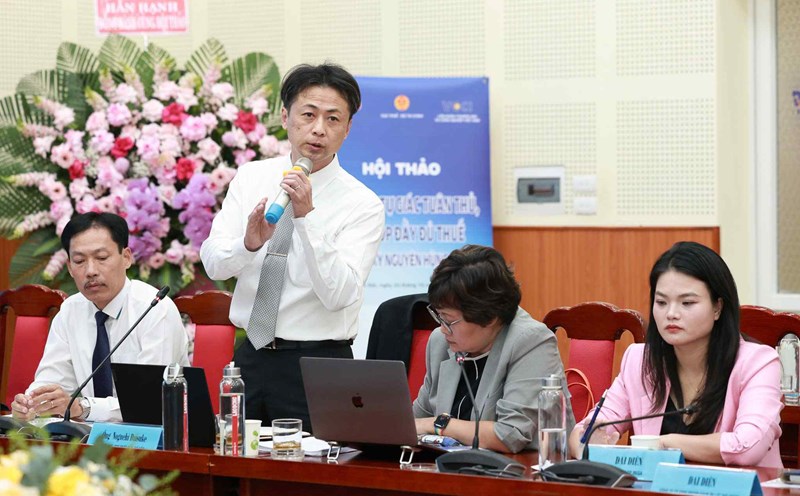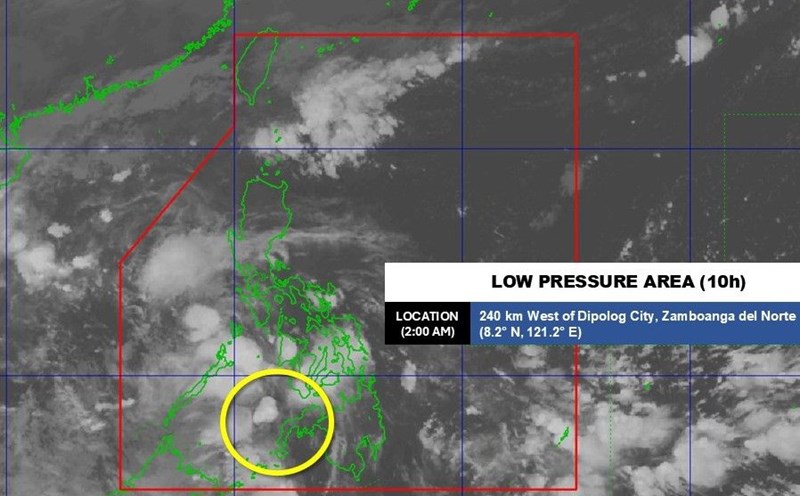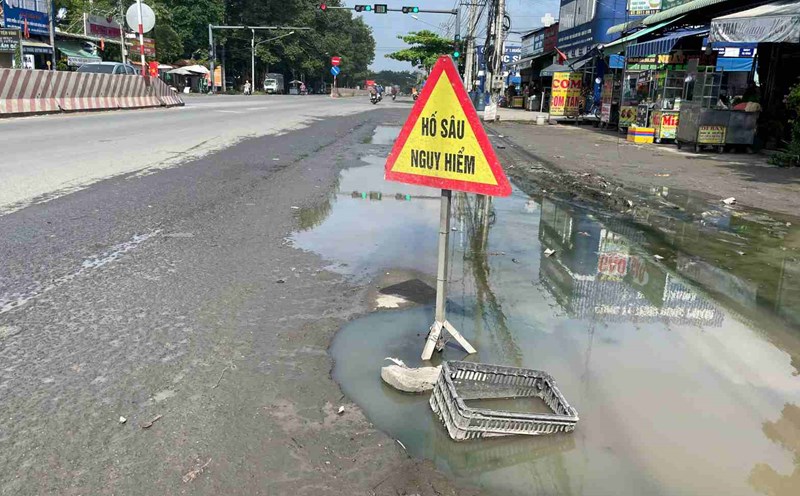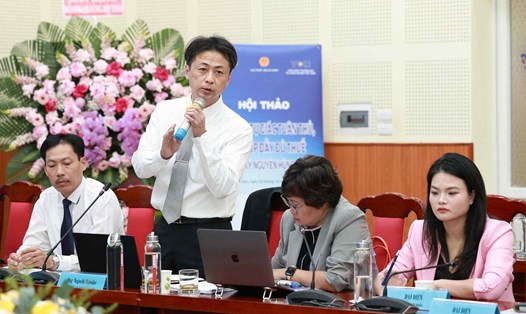International experience: Voluntary football is a measure of confidence
In developed countries, voluntary tax compliance is considered the central goal of modern tax management and an important measure of social trust.
Trust and fairness are the core foundation: When taxpayers believe in the transparency and fairness of the system, they will voluntarily comply. Thanks to the right strategy, the level of tax compliance in developed countries is very high - many countries OECD have an on-time declaration rate of over 95%. Paying taxes becomes an obvious and legitimate act, reflecting the culture and sustainable trust between the people and the government.
Current situation in Vietnam: Reform efforts towards voluntary compliance
In Vietnam, the " self-declaration - self-payment" tax management mechanism has been legalized since 2007 under the Law on Tax Administration, marking a turning point in reforming from the old model (tax authority calculates tax, collects tax, checks) to the modern model. Since then, the Tax sector has continuously reformed and modernized, making many progress, contributing to improving the level of tax compliance. Especially in the 2021-2025 period, many outstanding results have been recorded:
First, electronically, comprehensively transforming tax services: The Tax sector has deployed the Electronic Tax Service System (eTax) since 2015, integrating functions from registration, declaration, tax payment to tax refund, creating conditions for taxpayers to fulfill their obligations anytime, anywhere, greatly reducing time and compliance costs.
To date, 99.6% of enterprises have declared taxes electronically, 98.9% of enterprises pay taxes electronically, and 100% of enterprises refund taxes electronically - rates of nearly 100%. Since July 2022, electronic invoices have been applied nationwide; to date, the tax system has processed nearly 19 billion electronic invoices, demonstrating the huge volume of digitized transactions.
The Tax sector also developed many new electronic information services and portals to serve taxpayers of all subjects (from foreign enterprises to domestic business households, from mobile applications to specialized e-commerce portals). The synchronous application of information technology has created maximum convenience for taxpayers, while providing tax authorities with a large source of data to serve effective management.
Second, Completing policies and simplifying administrative procedures. Along with digital transformation, the Tax sector pays special attention to perfecting tax institutions and policies in a simple, transparent, easy-to-understand, and easy-to-implement direction.
Third, always focus on propaganda and support for taxpayers: The Tax sector always identifies taxpayers as the center of all reform activities. Propaganda and support work has been implemented more and more professionally, diversified in forms and information channels, helping to reach all taxpayers as quickly as possible.
In particular, from 2021 to present, the Tax sector has proactively advised all levels to issue and implement many fiscal policies to support people and businesses to overcome difficulties (such as tax exemptions, reductions, and extensions); the total value of support packages in 5 years is estimated at about 1.1 million billion VND.
In parallel, the tax authority has established many channels to receive opinions and quick feedback: publicize hotlines, lists and phone numbers of tax officials in charge of each locality; since July 2025, the online taxpayer satisfaction assessment system has been operated nationwide.
Fourth, apply a risk-based tax management mechanism: Risk-based tax management is a breakthrough reform step, contributing to improving compliance and strengthening trust in fairness and transparency in tax management.
gaps in tax compliance management
The individual business household sector (especially in the fields of food, services, online business) is still a group with many challenges in improving voluntary compliance. Most individual households are small and large businesses, have little habit of recording accounting and are afraid to access administrative procedures, especially electronic procedures.
Through dialogue activities, it was found that individual business households are very concerned about having to be transparent in revenue, use electronic invoices, and record books fully. Many people are worried that revenue transparency means being "seeed" all activities, easily being checked. The fact that consumers still have the habit of "not getting invoices" makes businesses not feel the need to issue invoices according to regulations.
The Tax Department understands that the majority of these businesses want to comply but are limited in knowledge, skills and hesitant psychology. This is a group that needs to continue to be supported and enthusiastically guided to "hand the hand in direction" so that they can confidently accompany the tax authorities in the transparent and modernization roadmap.
In addition, there are also some taxpayers who intentionally violate tax laws: making fraudulent declarations, tax evasion, illegal purchase and sale of invoices or colluding with violations.
Orientations and solutions to improve voluntary compliance
First, continue to improve tax law policies - transparency and simplicity. Continue to review and reform the tax policy system in a simple and easy-to-understand direction, facilitating taxpayers to comply properly. Comprehensively review the tax law system, advise on amending legal regulations on tax management and tax forms in a simple, transparent, easy-to-understand, easy-to-implement direction, eliminate inadequate regulations with the following goals:
Promoting digital transformation and comprehensively modernizing tax management;
Increase transparency, effectiveness, and efficiency, based on a clear policy foundation, simple procedures, and advanced technology;
Ensure consistency with relevant laws and international practices;
Improve management capacity, combat fraud and loss of revenue, create a fair and favorable compliance environment.
Second, digital transformation, modernizing tax management, associated with building connecting big data. The Tax sector continues to improve the Big Data ecosystem, connecting tax data with national databases and data of relevant ministries and branches, forming an open and integrated tax management system between state agencies.
Third, rediseabout professional processes, innovate management methods and systems. The Tax Authority is redidingiding the entire professional process according to a modern management model, with taxpayers as the center of all activities.
Procedures from registration, declaration, tax payment, tax refund to inspection, enforcement... will be integrated and smooth instead of being separate as before. The new orientation is to manage taxes according to the "life cycle" of taxpayers combined with management according to functions - closely following the journey of taxpayers from the beginning of business to the end of operation to provide timely guidance, warnings and support at each stage.
At the same time, the Tax sector is building a new generation IT system that will be the "backbone" of smart electronic tax management, allowing centralized processing and automated decision making based on data analysis, risk management, resource optimization, and minimizing manual intervention; early detection warnings, helping to prevent violations in a timely manner, while reducing "disturbing" good compliance.
Fourth, increase support and propaganda suitable for each group of taxpayers. The Tax sector continues to promote the "accompany - serve" philosophy. Propaganda and support work will be personalized according to the needs, characteristics, scale and level of compliance of each group of taxpayers.
Fifth, resolutely prevent, defraud, tax evasion, and strictly handle violations.
In addition to accompanying and supporting the majority of taxpayers to comply well, the Tax sector is steadfast in the principle of "no tolerance for fraud" and "no forbidden zones" in handling violations. Tax inspection work is implemented with risk analysis and automation of taxpayer selection processes, to eliminate subjective factors and prevent coverage and discrimination. Thereby, helping to focus resources on cases with signs of violations, while minimizing "tsurpeting" taxpayers to comply well. Applying a large database, AI to identify and screen taxpayers for intentional non-compliance, dishonest tax declaration, and risks of illegal purchase and sale of invoices...
These cases will be strictly handled by the authorities, including criminal handling when there is sufficient basis according to the law. The implementation principle is "no tolerance for fraud" and "no forbidden areas" in handling violations. This is an important principle to maintain fairness for taxpayers who comply well, strengthen trust and enhance the spirit of voluntary compliance in the whole society.
Sixth, continue to improve the capacity and service spirit of tax authorities. The human factor is the key to the success of all reforms. The Tax sector will continue to focus on training and fostering the team of civil servants not only in professional skills, but also in technological skills, data analysis and communication and behavior with taxpayers. Resolutely eliminate harassment and negativity; strictly handle violating officials to maintain discipline and the trust of people and businesses.
On the Tax Department side, it is committed to striving for comprehensive and strong innovation in processes, technology systems, people and service methods, taking the satisfaction of taxpayers as a measure of operational efficiency. Each tax official is a dedicated and honest companion, always ready to support and guide taxpayers to understand and do the right thing to be determined to properly implement President Ho Chi Minh's advice: "Tax collection must win the hearts of the people".











